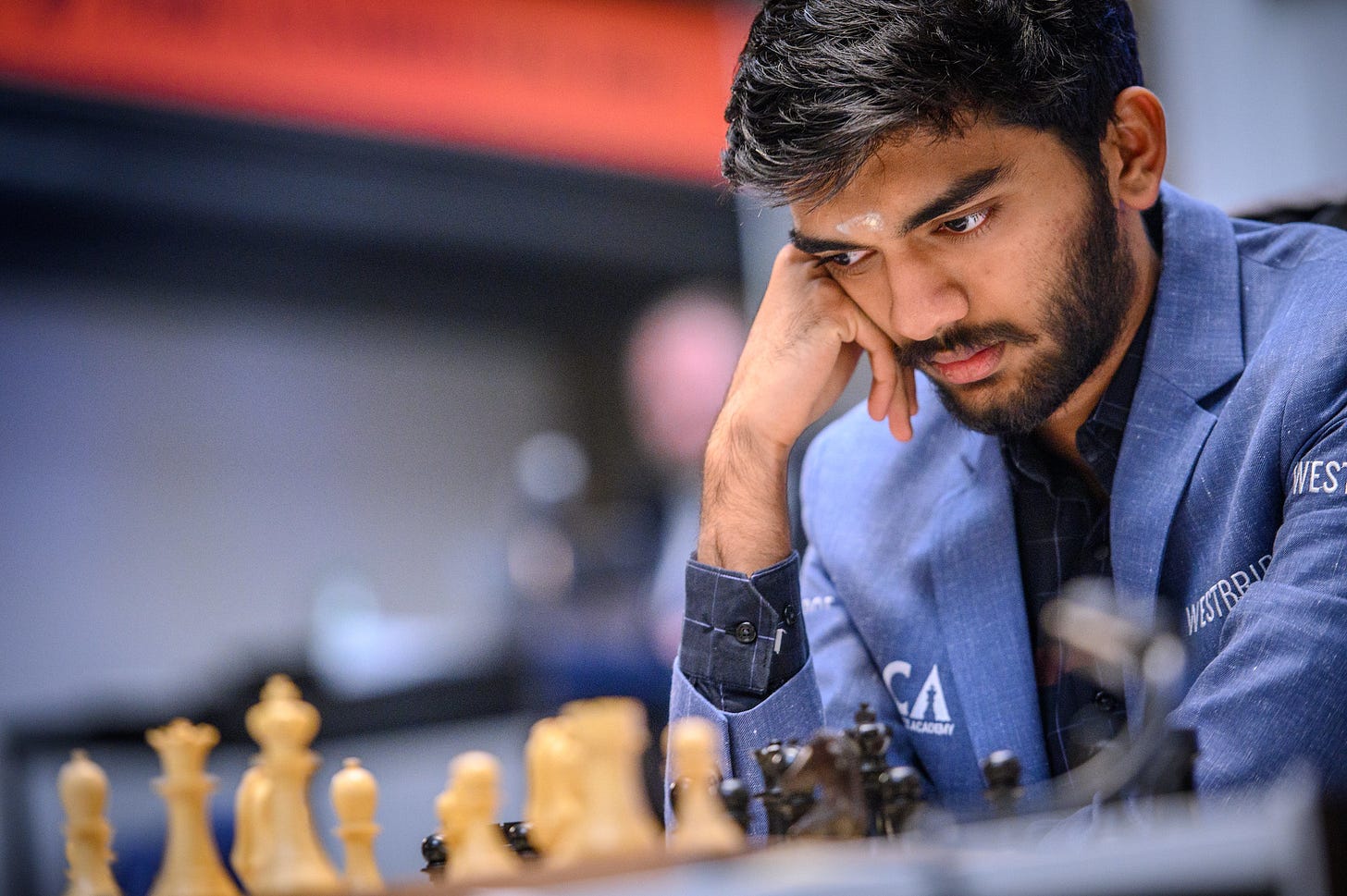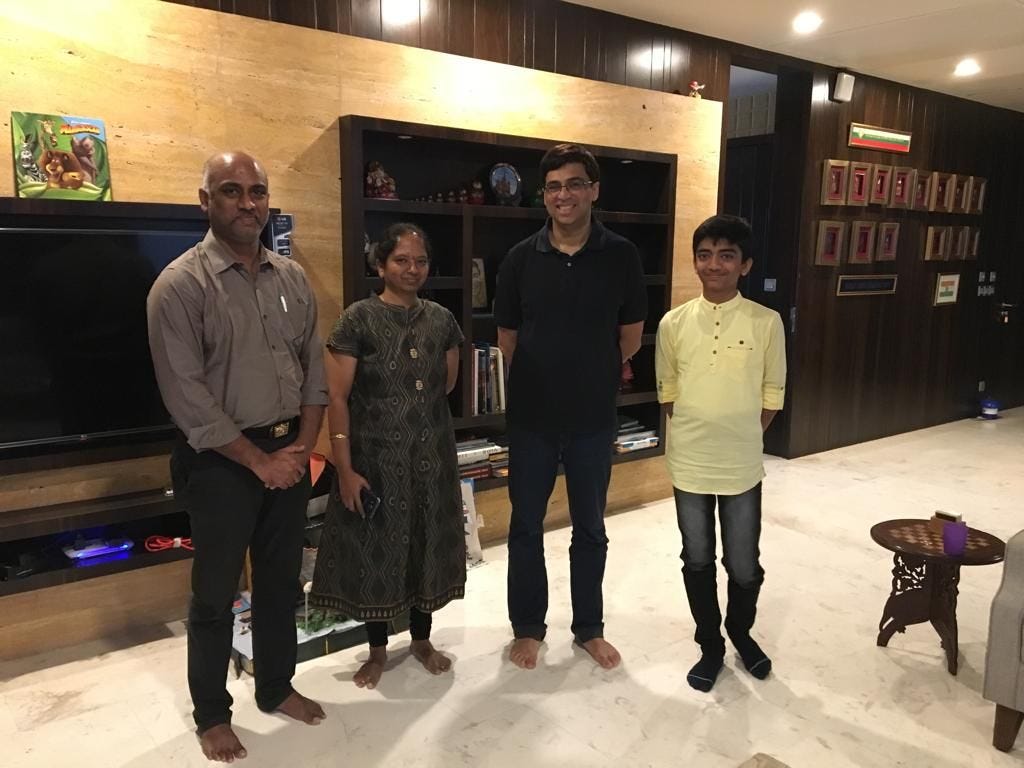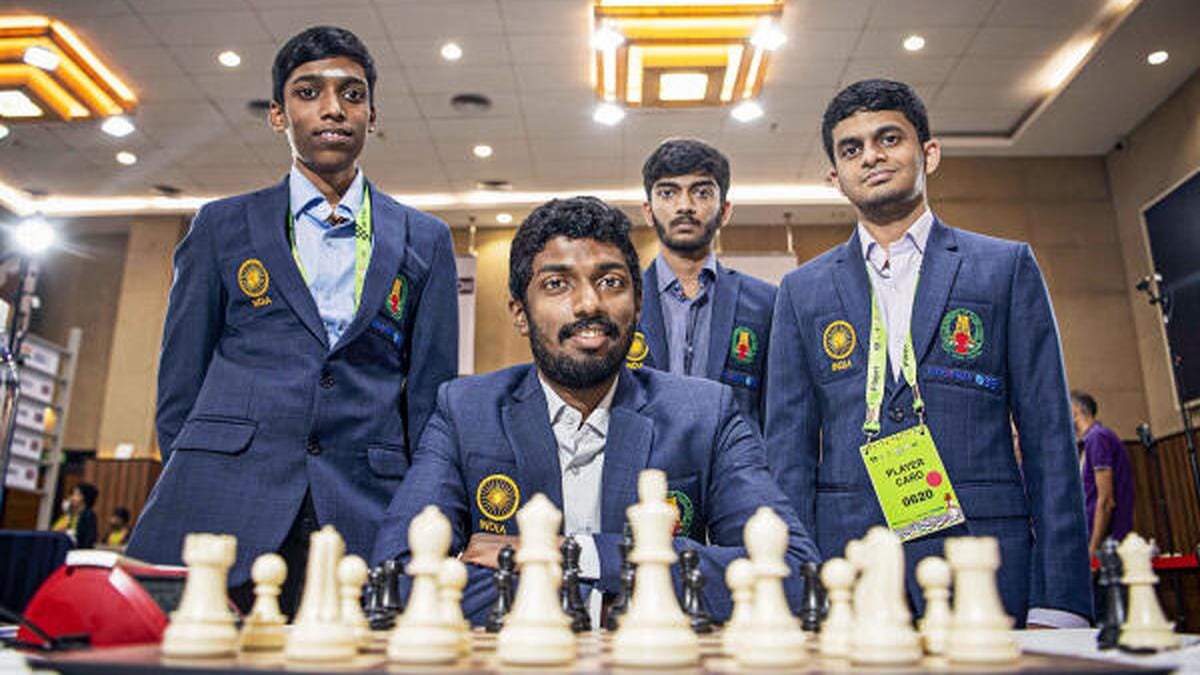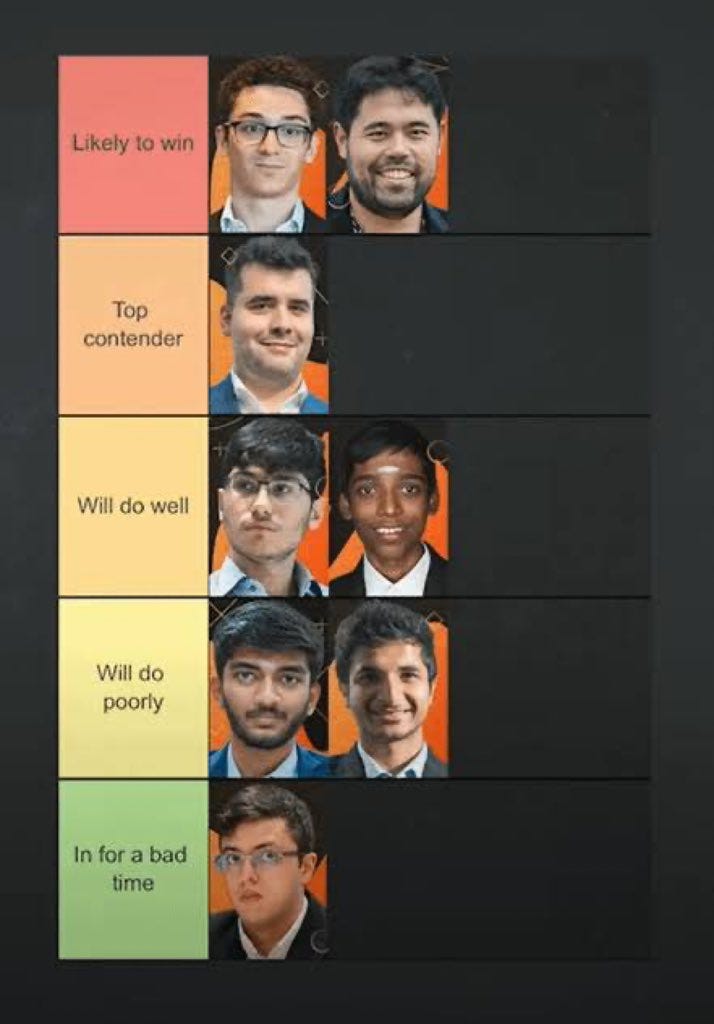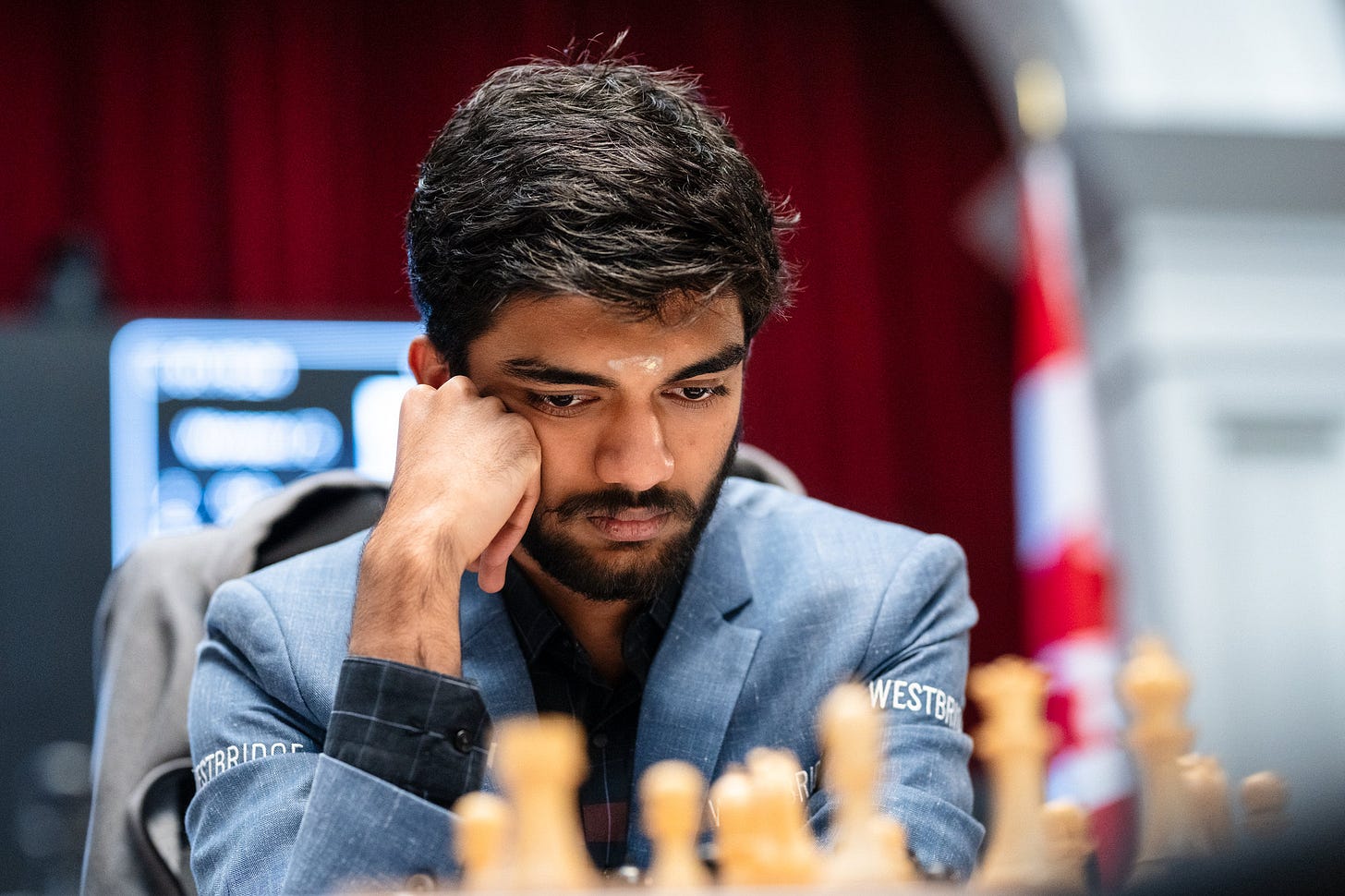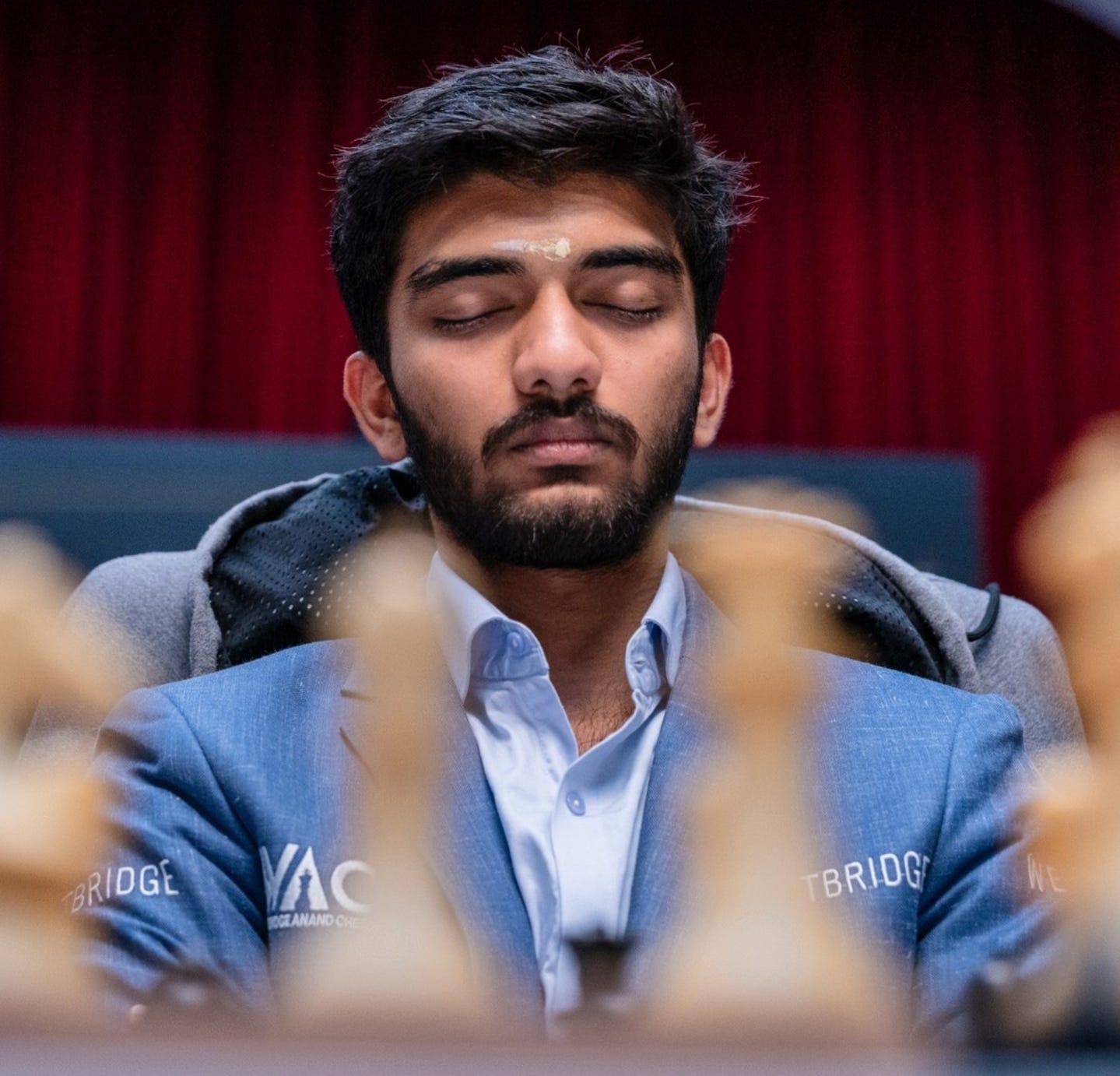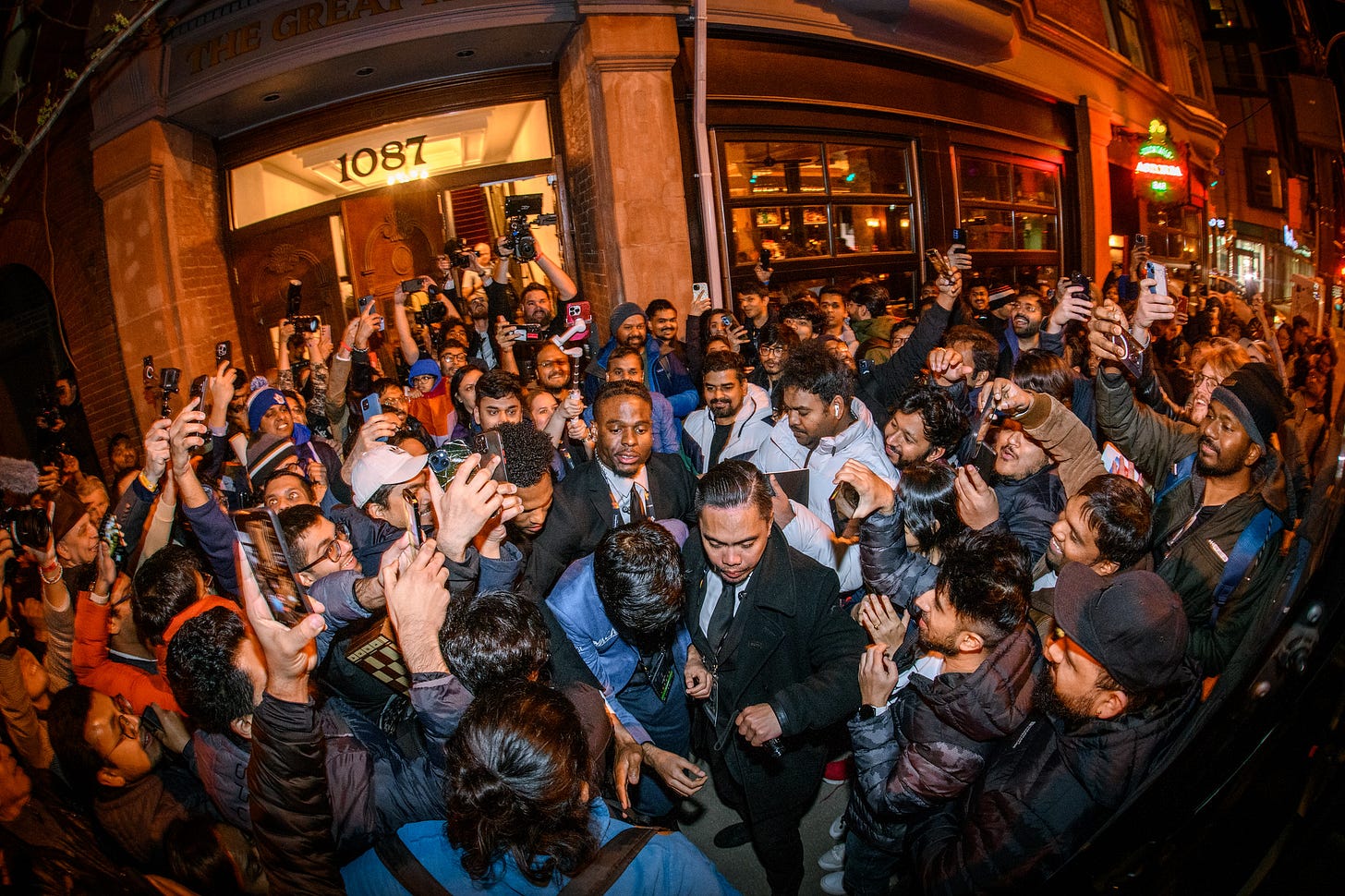Gukesh, a wunderkind who was always destined for the world stage
From dreaming to realizing, Gukesh completes a full circle
It takes an entire community to raise a Grandmaster.
Perhaps it is true in all senses in Gukesh Dommaraju’s rapid rise to becoming the youngest winner of FIDE Candidates.
Gukesh was all of 17 when he beat a bunch of top grandmasters in a rigorous competition that lasted 19 days. It isn’t just the length of the tournament or the weight of the candidates at the tournament that makes it so special; It is the exorbitant mental pressure.
Image Courtesy: FIDE // Michal Walusza
People often wither under mental pressure, but when one doesn’t, they differentiate them from the others. Gukesh was people. While endearing the pains of ups and downs, the 17-year-old never showed it on his face and never even allowed the opposition to sniff his mental shortcomings.
Gukesh was 11 years six months old when he first announced himself on the world stage.
"I want to become the youngest World Champion ever in the history of chess!” Gukesh said in a rare early interview back with Sagar Shah.
It was a rare interview with ChessBase India, an organisation that has put its sweat, tears and blood into the sport's growth in the country. This is where the entire community stepped up to raise Gukesh, the grandmaster.
One doesn’t get better on his own, and that’s where the chess community in the country has played a huge role in shaping the youngster. Undoubtedly, Vishwanathan Anand remained the chess benchmark for any kid growing up in India.
Image Courtesy: ChessBase India
It was no mean feat that he took up the sport and made it his own in a country celebrating cricket. It is visible in how Anand had control over the No.1 ranking in the country for 36 long years.
That speaks volumes about the man and his achievement in changing the mindset of the upcoming generation. Chess wasn’t boring anymore; it was viewed as classy. Under Anand’s guidance at the Westbridge Anand Chess Academy (WACA), Gukesh’s learnings were invaluable.
And the golden generation of grandmasters - Praggnanandha, Gukesh, Arjun, Nihal - took it upon themselves to be the country's flag-bearer. They say you are only as good as the competition around you, and in Gukesh’s case, the competition was god-damn high.
Image Courtesy: PTI
Never in the country's so many years of history has chess been so revered. Never has that India's No.1 rank been this volatile in its entire existence. Teimour Radjabov was right when he said the most unstable thing in the world is the No.1 chess player in India's position.
If Praggnanadha drove the audience's imagination wild by beating Magnus Carlsen, Nihal Sarin showed the world that speed chess wasn’t India’s weakness. Meanwhile, Arjun Erigaisi wasn’t too far behind the quartet, beating Carlsen in the seventh round of the Aimchess Rapid in 2022, showing off his well-rounded game style.
You are only as good as your competition; certainly, Gukesh had to learn to be the best.
It isn’t just the competition; when you talk about the sport in the country, you also need to address the various coaches who have blown the roof off with their tactics.
Image Courtesy: Gukesh Twitter
Be it Srinath Narayanan, Vishnu Prasanna (Gukesh’s coach) or RB Ramesh, who saw the rise of this young crop from close quarters during his time with the India 2 team at the Chess Olympiad, 2022.
At that event, the entire world noticed the growth of one certain Gukesh, who RB Ramesh described as “Self-confidence, daring play, risky approach, narrow opening repertoire, defends well in tough positions, and interesting time management.”
Fast forward to 2023, Gukesh wasn’t even supposed to be at the FIDE Candidates.
It would have easily been Anish Giri any other day, but the fact that the entire chess community came together to host the Chennai Grand Master was the biggest evidence of togetherness. It was a tournament that was organised by MGD1, NODWIN Gaming and ChessBase India and supported by the Tamil Nadu Government and Sports Development Authority of Tamil Nadu.
That shows how much the two worlds collided to make Gukesh’s qualification possibility a dream.
The average ELO at the event was 2711, and Gukesh was at 2720 then, and there were some absolute superstars of the game - Parham Maghsoodloo and Levon Aronian - too at the event.
Despite having the tournament, Gukesh still had to overcome the challenge and obstacles of beating some of the trickiest players that chess titans have faced.
In Maghsoodloo, you have one of the most attacking threats in world chess, and Aronian’s game style is such that you get mesmerised by one of his multiple traps after the opening. But Gukesh saw through the tournament and booked himself a place at the Candidates.
Image Courtesy: Chess.com // Magnus Carlsen’s prediction for FIDE Candidates 2024
And when he was at the Candidates, his chances were quite low.
Most famously, Magnus Carlsen, who puppeted other players on the biggest stage, didn’t rate Gukesh’s chances too highly. In Magnus’ words, he said Gukesh "won't do poorly, but I don't think he will do too well either. I can see him anywhere from +2 to -5".
While such words could have really spurred anyone, it didn’t affect Gukesh, who, in a lengthy ChessBase India interview, revealed that he wasn’t a favourite, so Magnus wasn’t too wrong in his prediction.
But what made Gukesh stand out from the Candidates was his ability to see through difficult positions and convert a good opening into a solid endgame. To wade through the middle game without giving too much away to the opponents, and doing all of this without giving too much away to the opponents.
When asked what kept him motivated throughout the competition, he said the seventh-round loss against GM Alireza Firouza.
"It was funnily the 7th-round loss (that gave me hope). It was not the game itself, but I was upset after that game. It was a very painful loss,” Gukesh told ChessBase India. But from thereon, he went on an unbeaten spree, ensuring that he won in a near group of death.
Courtesy: FIDE
Even in his final round against GM Hikaru Nakamura, Gukesh played a game to perfection, so much so that even Hikaru admitted that he couldn’t have ‘pushed for a win’ against the Indian sensation.
"10-year-old Gukesh dared to dream, 17-year-old Gukesh lives the dream," Tania Sachdev was at her best, doing commentary on Chess24 India’s YouTube channel. He didn’t just live the dream; he made sure the upcoming generation saw that and became extra motivated to pick the sport.
Not to forget the contribution from Grzegorz Gajewski, Gukesh’s second for the event, without whom many of Gukesh’s frailties could have been exposed. One of Gajewski’s biggest contributions at the event was his ability to help Gukesh master several new openings and his ability to play much more comfortably with the black pieces.
Image Courtesy: FIDE
Throughout the Candidates, there were two constants in Gukesh’s games. One is his meditation during the game's opening stages, and the other is his utmost respect for the sport. Like many other greats across other sports, respecting the game is the hallmark of greatness.
Even when he was feeling the heat, be it the loss against Firouza or during the last-round clash between GM Fabiano Caruana and GM Ian Nepomniachtchi, Gukesh always respected the chess board and arranged the pieces to perfection.
“It is the basic respect you give to the board. I was taught this from a very young age that you put the pieces back after playing a game,” Gukesh said.
Image Courtesy: FIDE // Michal Walusza
Gukesh was always destined to be a chess behemoth, but it took an entire community to raise him, and it is no surprise that his success is celebrated as their own. It was only fitting that the sun was rising when Gukesh was confirmed as the new champion of the Candidates.
Truly, a poetic justice for he is sparking a new dawn for Indian chess.



